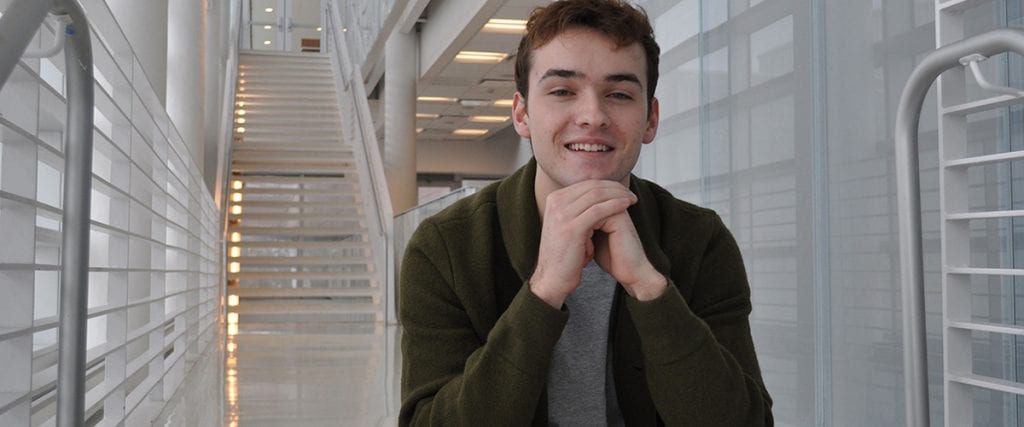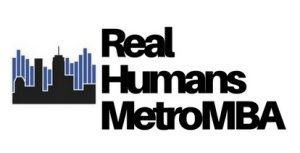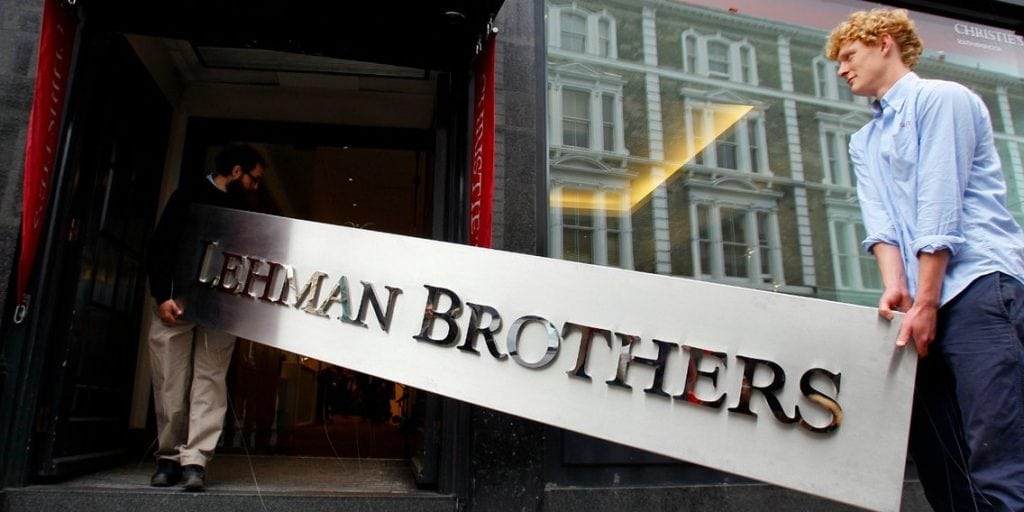Rutgers Students Spark Social Entrepreneurship, and More – New York News

Let’s explore some of the most interesting stories that have emerged from New York business schools this week, including Rutgers students jumping into social entrepreneurship.
Artificial Intelligence Gets Real – Stevens Institute of Technology School of Business Blog
Artificial Intelligence is now a $20 billion global industry and investment in AI is projected to triple in the next three years. AI is gradually reshaping many aspects of our daily lives right now. For instance, Apple’s Siri and Amazon’s Echo use AI-type processes, along with Google Maps and Translate. Notably, AI has become integrated into our transportation and medical systems, from self-driving buses, to diagnosing X-rays, AI has shown itself to be highly reliable for many processes.
Electrical and computer engineering professor K.P. “Suba” Subbalakshmi and founding director of SIAI (the Stevens Institute for Artificial Intelligence), asserts, “Simply put, our vision is to drive AI research and application that solves some of those tough ‘big’ problems that have so far resisted solving.”
AI will profoundly reshape society as we know it, but Subbalakshmi reassures the public,”It will permeate everything that we are doing, that’s a fact. But how it’s going to permeate sensibly and how that will affect our lives is in our hands, not the machines’.”
You can read more from the recent Stevens blog entry here.
Enactus Competition Sparks Student Interest in Social Entrepreneurship – Rutgers Business School News
Enactus is a group at Rutgers Business School that fosters social entrepreneurship as a way for students to empower their communities. Ben Foresti, a member of Enactus, worked with the chapter’s executive board to organize a social case competition that inspired a group of Rutgers students to create a unique high school-based incubator program to address food insecurity in New Brunswick.

“We thought a case competition would be a good way to introduce the wider public of Rutgers to social entrepreneurship,” Foresti says.
Foresti shares how he become involved in Enactus:
“While I was exploring clubs to join, I thought I wanted something that would give me good professional development and I was also looking to do something volunteer related. Enactus seemed like a good intersection of the two concepts. It offers professional development and there’s also the focus on improving your community in a sustainable way. It struck me as a perfect organization.”
Foresti reflects on his motivations for holding a social case competition. “We thought a case competition would be a good way to introduce the wider public of Rutgers to social entrepreneurship.”
You can find out more about the article here.
The Evolution of Wine Futures Pricing Research – Whitman School of Management News
Recently, professor Burak Kazaz of Syracuse University’s Martin J. Whitman School of Management delivered a talk late last year, offering faculty and Ph.D. students a closer look into his research on wine futures pricing. Kazaz’s research collected a range of data from New York to the Bordeaux region of France in order to to build a mathematical model that would predict wine futures prices.
During his talk, Kazaz provided an overview of the wine supply chain, which begins with the winemakers. He notes:
“It is important to note these wine markets do not sell only physical bottles of wine. They also sell wine futures. ‘En primeur,’ or wine futures, is a purchase method that allows distributors to purchase wine while it is still in the barrel before it is bottled.”
Kazaz’s predictive model has shown astonishing accuracy, with an average error rate of only 10 percent. Neil Taylor, vice president at Live-ex wrote to the team lauded Kazaz, “Your predictive model is certainly the most accurate I have seen of all of the work we have either done ourselves or participated with.”
Check out more from the recent article here.
Real Humans of the Rutgers Business School

When considering earning an MBA, a few priorities tend to stick out. Cost, career opportunities, flexibility, and educational value are all obvious sticking points. However, another crucial feature should matter more when it comes time to decide where you’ll go: return on investment.
The Rutgers Business School in New Brunswick and Newark, New Jersey, isn’t just the premiere MBA option in the Garden State (ranked 44th overall by U.S. News & World Report): it’s among the best return on investment opportunities you can find anywhere.

According to the Financial Times, which also ranks RBS among the best business schools in the world, the average salary jump for MBA grads is a staggering 112 percent. This return on investment figure bests some of the most recognizable programs in the world, including Dartmouth’s Tuck School of Business, the London Business School, and New York University’s Stern School of Business.
Part of the reason for such a pronounced ROI is, of course, the school’s ideal proximity to the New York City metro, offering students extensive opportunity advantages that other prestigious institutions struggle to compare to. Other provincial factors in the eye-popping ROI are the lauded areas of focus, including supply chain management (ranked 6th best in the country by U.S. News & World Report). When factored together, it may not be surprising to find a lot of diverse backgrounds studying at Rutgers Business School.
When talking with several current students, the litany of non-traditional students tends to stand out, including a radio DJ tired of an exhaustive industry, a theater vet, a former fifth grade music teacher looking to break out in an entirely new field, and more. Read on to see their stories and what the future may hold for life after an MBA.
7 Best Schools that Specialize in Supply Chain Management

Supply chain management delves into business at the big-picture level. It puts all the operations together to ensure that everything functions smoothly. It’s the ideal position for individuals who are interested in managing people, organizing moving parts, and analyzing global trends.
According to the Bureau of Labor and Statistics, supply chain management and operations is a fast-growing career field. The employment rate is expected to increase by 7 percent by 2026. It’s also an industry with high salary potential with additional earning opportunities due to commissions and bonuses.
Earning an MBA in supply chain management opens up a host of opportunities to work as an inventory control manager, purchasing manager, vendor managed inventory coordinator, warehouse operations manager, and more. And almost every company needs quality employees in the field, which means you could find yourself working in retail, healthcare, technology, and more.
If that sounds of interest to you, the key is finding the right MBA program for success. Below, we’ve outlined our top seven picks for MBA programs in supply management. Continue reading…
3D Printing Research, Success Without Passion, and More – New York News

Let’s explore some of the most interesting stories that have emerged from New York business schools this week.
Award-Winning Paper Explores How Designers Innovate in 3D Printing Communities – Stevens Institute of Technology SOB News
In a new paper from Gaurav Sabnis, Stevens Institute of Technology School of Business Assistant Professor of Marketing, Associate Dean of Research Dr. Jeffrey Nickerson, and the University of Navarra’s Dr. Harris Kyriakou “examines knowledge reuse in 3D printing communities [where] makers often iterate on designs created by other users to create refined products.”
According to the Stevens Institute of Technology SOB News article, “the professors looked at frequently reused designs and found a few clear signals in what helps designs get shared—from a designer’s level of experience, to the amount of information she included about her designs.”
The trio’s research is among the first to properly survey 3D printing communities and it could have only happened in the interdisciplinary incubator that is Stevens. Dr. Sabnis writes, “Stevens has a great culture that leads to more interdisciplinary research. I’m excited to do the kinds of research that creates real-world solutions for businesses in the digital age.”
You can read more about the 3D printing research from Stevens here.
Reviving Grit: Columbia Business School Study Finds That In Pursuit of Success, Dedication Falls Short Without Passion – Columbia Business School News
In a new PNAS study, Columbia Business School and Frankfurt School of Finance & Management researchers found that grit “without the clear sense of direction that passion provides does not propel people forward.”
Columbia Professor and co-author Adam Galinsky writes, “We were not surprised to find that dogged dedication to an objective – without a true passion for the goal – is mere drudgery.”
“But until now, research on grit failed to factor in the propulsive force that animated grit’s perseverance. By properly incorporating passion into the grit equation, we now have evidence that people who are passionate for their goal and persevere towards it will reach higher heights.”
You can find Why Grit Requires Perseverance and Passion to Positively Predict Performance here, and discover more fro the Columbia Business School News article here.
Where Professors Share Knowledge on Issues in Finance, Economics and Accounting – Rutgers Business School News
The Livingston Student Center recently hosted the annual Conference on Pacific Basin Finance, Economics, Accounting, and Management, which was founded by Rutgers Business School Distinguished Professor of Finance and Economics Cheng-Few Lee at the business school in 1992.

Rutgers Business School Distinguished Professor of Finance and Economics Cheng-Few Lee / Photo via business.rutgers.edu
The conference assembles “finance professors from around the world” to absorb “research on a variety of issues, from financial applications of parallel processing to the ethics of cryptocurrency.”
According to the Rutgers Business School News article, “Many of the conference speakers were Professor Lee’s former colleagues or students, including professor Yong Shi, who is one of 13 advisors to China’s premier, [and] delivered a keynote address on big Data Mining and Knowledge Management.”
You can read more about the event here.
Columbia Revisits The Great Recession, and More – New York News

Let’s explore some of the most interesting stories that have emerged from New York business schools this week.
Showing Discipline with Kindness, Compassion to Employees Results in Better Job Performance, Research Shows – Binghamton University School of Management
New Binghamton SOM research reveals that leaders who show “no compassion to employees doesn’t bode well for their job performance, while showing compassion motivated them to be better workers.”
Binghamton Assistant Professor of Management Chou-Yu Tsai and his coauthors “surveyed nearly 1,000 members of the Taiwanese military and almost 200 adults working full-time in the United States” to review the subordinate performance that sprang from Authoritarianism-dominant, Benevolence-dominant, and Classical paternalistic leadership styles.
Tsai explains, “Being benevolent is important because it can change the perception your followers have of you. If you feel that your leader or boss actually cares about you, you may feel more serious about the work you do for them.”
“Subordinates and employees are not tools or machines that you can just use. They are human beings and deserve to be treated with respect. Make sure you are focusing on their well-being and helping them find the support they need, while also being clear about what your expectations and priorities are. This is a work-based version of ‘tough love’ often seen in parent-child relationships.”
You can watch a video on the research below.
A Food Scientist Pursuing a Rutgers MBA Creates Perfect Life Nutrition – Rutgers Business School News
Perfect Life Nutrition founder and current Rutgers Business School MBA Juan Salinas talks about how his path to food science led him to take home the $20,000 top prize at this year’s Rutgers Business Plan Competition.
A native of Honduras, Salinas worked at Nabisco, Cadbury, and Power Bar, where he “combined his expertise in food science with knowledge he gained in sports nutrition working on a master’s offered by the International Olympic Committee.”
He left the corporate ringer in 2015 to start Perfect Life Nutrition and its flagship P-nuff Crunch Baked Peanut Puff, a plant-based protein snack that satisfied Salinas’ desire to make something “tasty and nutritious.”
According to the Rutgers Business School News, Perfect Life Nutrition has since “pushed out two new versions of P-nuff Crunch, both are peanut-based but one is cinnamon-dusted and the other is flavored with cocoa.”
You can read the rest of Salinas’ article with Rutgers Business School here.
Dodd-Frank a Flop: Columbia Business School Study Recommends Fundamental Reforms for Landmark Financial Regulation – Columbia Business School
A decade after the Great Recession hit, new Journal of Applied Corporate Finance research from CBS Professor Charles Calomiris unpacks “numerous flaws in post-crisis financial regulations and proposes modifying or eliminating a number of recently approved financial reforms, including pieces of Dodd-Frank and the Volcker Rule.”

Lehman Brothers’ collapse in 2008 was among the first major signs of massive economic distress – Photo via Oli Scarff/Getty Images
In a recent interview with the school, Calomiris explains, “The Great Recession created a rush in Washington to establish guardrails for the financial industry. But good intentions, expanded powers, and new mandates do not necessarily lead to smart policy decisions.”
“Ten years later, it’s clear that the Dodd-Frank Act and further regulations are failing to curb risky behavior while obstructing economic growth. We can do much better than these costly, unsustainable regulations that will do little to prevent a repeat of the financial crisis.”
Calomiris proposes nearly two-dozen reforms to current regulations, including:
- “Linking financial regulation directly to the performance of the financial sector and demonstrate that regulatory costs are justified by measurable benefits.
- “Restoring the role of laws and formal rule-making in financial regulation and end the discretionary authority of politicized actors like the FSOC and the Consumer Financial Protection Bureau.”
- “Holding regulators accountable to the public by requiring transparent regulatory standards.”
Has Financial Regulations Been a Flop? (or How to Reform Dodd-Frank) can be found here.
Crypto Regulation, Military Experience in Business School, and More – New York News

Let’s explore some of the most interesting stories that have emerged from New York business schools this week.
Crypto Market Raises $13 Billion Since 2014, Amid Zero Regulation – Columbia Business School News
Columbia Business School’s Thomas Bourveau recently co-authored research, which analyzed 776 initial coin offerings (ICOs) shared between April 2014 to May 2018 to reveal a number of key insights into regulating the decentralized platforms that comprise the current cryptocurrency market, as well as the “value of disclosure in this fast-growing global unregulated market.”
According to the article, the market offers “virtually zero protection for investors since issuers are not required to register with any securities market authority.” Moreover, issuers are “not required to provide periodic financial or non-financial disclosures.” Crypto market participants prefer “self-regulation” and decentralization to securities regulation, although it’s unlikely that the “ICO market will remain completely unregulated for much longer.”
The research, which was co-authored by LBS’s Emmanuel De George, the University of Utah’s Atif Ellahie and Daniele Macciocchi, highlights characteristics of successful ICOs, which includes “disclosure of the source code; provision of genuinely informative white papers; substantial social media activity; disclosure of vesting periods for founders’ tokens; and issue of tokens that are well rated by crypto-market information intermediaries.”
You can read the full article here and the full working paper here.
Applying Military Experience To a Sustainability Challenge – Johnson Business School Feed
Johnson Association of Veterans VP of Community Relations Jason Buselli (MBA ’19) recently wrote about his experience using technology to solve “security problems of the Afghan National Police” to his semester working on the KAZNET mobile crowdsourcing platform in Kenya as part of Johnson’s Sustainable Global Enterprise (SGE) immersion.
According to Buselli, KAZNET was “developed by the International Livestock Research Institute (ILRI) and funded through a USAID grant to help alleviate data asymmetry within the livestock value chain in Kenya.” Data asymmetry contributes to exploitation of small holder farmers by traders and brokers.
The platform uses “contributions from mobile users to collect, synthesize, and distribute livestock market prices.”
Buselli writes of his semester in Kenya:
“I have gained invaluable exposure to work in emerging markets, in-field consumer research, value discovery/development, market sizing, tech platform monetization, financial modeling, and implementation strategy development. I am confident that I can apply the business skills I gained through the SGE immersion to my internship [at Johnson & Johnson’s Janssen Pharmaceutical Companies] this summer.
You can read the full article here.
Summer Camp Introduces Students to World of Business – Rutgers Business School Blog
Rutgers Business School recently held its fifth annual Summer Camp, which hosted ninety high school students at its Livingston campus, over the course of seven days.
Assistant Professor of Professional Practice in Finance and Economics Ron Richter says, “The camp allows high school students to experience business and college life in a manner that allows them to make informed decisions about the next chapter in their lives.”
Yvonne Tang, a camper who took part in this year’s session, writes, “The Rutgers Business School summer camp opened my eyes to the world of adulthood and professionalism. Regardless of whether my peers decided they were interested in business, the most important part was that by the end of the week, we learned what business really meant. This learning experience is a must for anyone who thinks they’ll be interested in business.”
You can read the full article here.
